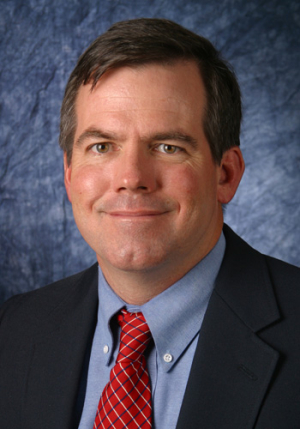The National Science Foundation has awarded the University of Houston a five-year, $2 million grant to support programs for recruiting and retaining students in science, technology, engineering and math (STEM) fields.
Not only connecting students with mentors but also exposing them to real work happening in these fields, six programs will be rolled out using the funding. All are expected to help contribute to developing the highly skilled workforce needed to fill an increasing demand for future technical jobs—some 1.25 million by 2012 according to the U.S. Bureau of Labor Statistics.
“In today’s world the ability of the U.S. to remain economically competitive and nationally secure is critically dependent on continuing our past dominance in technological innovation,” said Stuart Long, a professor in the UH Cullen College of Engineering’s Department of Electrical and Computer Engineering and lead investigator on the grant. “This will only be possible if we are able to increase the numbers of students selecting and completing degrees in STEM fields of study. These new programs concentrate on recruiting the next generation of these students and also retaining them once they are here.”
This is the second grant the Cullen College has received through NSF’s Science, Technology, Engineering and Mathematics Talent Expansion Program (STEP). Among its new initiatives are a summer camp for upper-level high school students as well as research opportunities for incoming college freshman.
Long’s colleagues; Fritz Claydon, associate dean for administration and research; Handi Rifai, professor of civil and environmental engineering; and Kathy Zerda, PROMES director, are named as co-investigators on the grant. Each, Long said, will play a crucial role in helping manage the program and coordinate the participation of faculty and graduate students from across colleges at UH to make these programs as successful as those started with their first NSF STEP grant in 2003.
The goal in 2003 as it is now with the new STEP initiatives, Claydon said, is to encourage more students to obtain degrees in STEM areas.
“During the time our previous STEP grant was in effect, the number of STEM degrees increased every year,” said Claydon. “Total undergraduate degrees granted in engineering, natural sciences, mathematics and technology went from 863 in 2002 to 1066 in 2007, an increase of 24 percent.”
Among these former successes—Redshirt Camp, a multi-day camp held in August and January to assist sophomores and to help transfer students with the move to UH and the start of more technical curriculum. This is in addition to Girls Reaching and Demonstrating Excellence (GRADE) Camp, a weeklong day camp introducing girls to science and engineering, for which more than 580 have participated in with some 67 percent now pursuing STEM fields in college.
Programs on schedule to be introduced this academic year with the most recent NSF STEP grant include:
Undergraduate Research: Freshman attending UH could begin adding valuable lines to their resumes as early as this summer with the help of a new program offering them the chance to be in the thick of real scientific research. Typically reserved for students in their third and fourth years of college, the program will pair 10 freshmen with faculty and graduate mentors in labs across campus as well as provide them a $3,000 scholarship.
Student Seminars: Students interested in interacting with faculty and learning about research taking place at the university could find Seminars for Undergraduate Research Experiences (SURE) appealing. Groups from several engineering disciplines will be organized, meeting once a month for sessions that include presentations from both students and a faculty member followed by discussions and questions.
Project-Based Courses: Developing critical thinking skills early on can take you a long way in the workplace. That’s why UH faculty are developing courses with hands-on components meant to introduce students to engineering subject matter earlier all while challenging them to learn to work in teams. These courses are reserved for students in their first year of study at the university.
Professional Development: One of the best ways to peak grade and high school students’ interest in STEM fields is to learn from someone passionate about the subject. A series of UH seminars for both senior-level education students and those already teaching at area k-12 schools will attempt to do just this through lab tours and discussions on cutting edge research topics in STEM fields right at UH. In addition, these professionals will be provided teaching modules to take back to their classrooms.
Women in Engineering at the University of Houston (WIE-UH): While UH has surpassed the national average for women pursuing engineering degrees, the university hopes to continue building on these statistics with this mentoring program designed to connect women with their peers and others in industry through retreats, seminars and service work.
Summer Camp: Geared toward female, minority and first-generation college students, the university is introducing a new weeklong summer camp for rising 11th and 12th grade students that not only provides them hands-on experience in the science and engineering, but connects them with professionals in industry. Through this unique camp, teens tour UH research facilities and actual work environments in the Houston area energy and petrochemical industries. Beyond this, they are challenged to build Lego Mindstorm NXT robots, construct basic circuitry and complete “MacGyver-style” projects.

